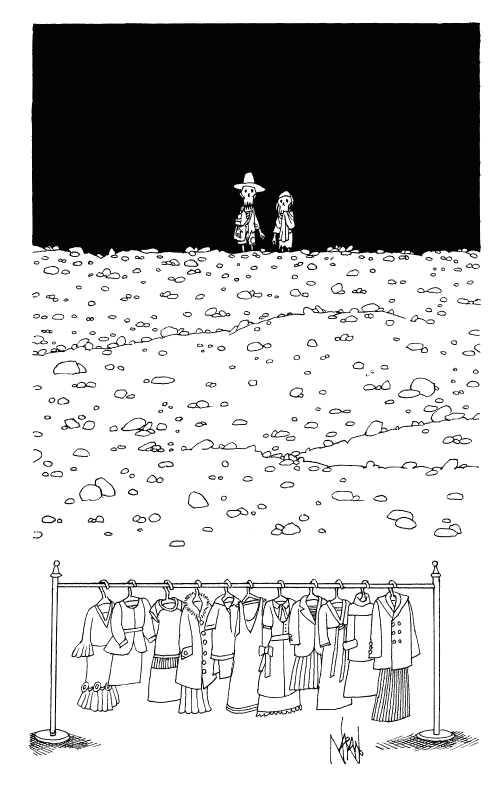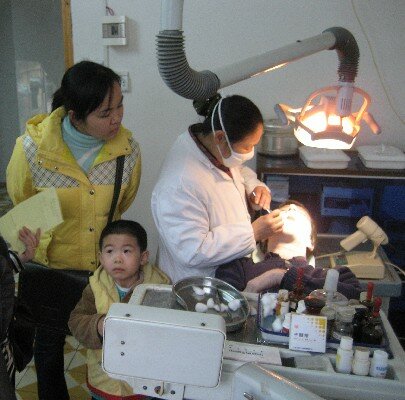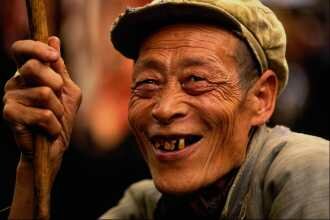Beijing’s Olympic Oracle Bones
Tim Johnson over at China Rises is busy rifling through the 172* page Confucian journalists guide for the Beijing Olympic Games, but found time time to share some insights on the new pictographs selected for the venues:
These are much more imaginative than those from previous games and are meant to look like ancient Chinese characters of old used on oracle bones and modern day seals or “chops” as some call them. They are named “the beauty of seal characters” which should have been reviewed by the counter-chinglish squad, but I agree with Tim that they look great.
It is a marked improvement over the Fuwa that started out embroiled in controversy because of their similarity to the Japanese Kero Kero (ケロケロちゃいむ, Kero Kero Chime) from a manga written by Maguro Fujita. The characters from the 30-episode anime series on Japanese TV were supposed to be mascots at the Moscow Olympic games of 1980 before the boycott and subsequent employment of Misha the bear. I caught a look at an obscure, but useful, Chinese language learning website called Chinese Tools and saw a post comparing the Friendlies (Now Fuwa) to the Kero Kero…. The Fuwa (Chinese: 福娃; pinyin: Fúwá; literally “Good-luck dolls”) are the mascots of the 2008 Summer Olympics in Beijing. They were announced by the National Society of Chinese Classic Literature Studies on November 11, 2005, a thousand days before the opening of the games, but 25 years after the Moscow games.
I panned the Fuwa a few months back when government changed the name of the Beijing Mascots from Friendlies to Fuwa (gesundheit!) bringing good news to folks who bought commemorative coins with the old name inscribed. Why the name change was made so late and why the original announcement was kept so low key is still somewhat of a mystery. China Radio International (CRI) originally revealed the switch and listed the reasons why the name should be changed:
“Firstly, Friendly is somewhat an ambiguous name, which could refer both to friendly people and friendly matches,”(and everyone knows that none of that nonsense is consistent with the goals of the Olympic Games!) a Dr. Li from Lanzhou University was quoted as saying on the site. “Secondly, the term Friendlies has a similar pronunciation to ‘friendless’ and thirdly, the spelling of Friendlies could be spelt as ‘friend lies’.” Dr. Li also thinks Grape Nuts is a venereal disease.
Laura Fitch, a Canadian who works in China as news editor, welcomed the change, saying the name Friendlies sounded “a little bit childish” and “doesn’t really have a meaning.” Laura didn’t get out much in Ottawa, but am I still glad that this was an expat approved switch and that the whole world will now get to say the more sensibly adult Fuwa which sounds similar to the sound made by my Chinese roommate expectorating. Laura, who should have talked to fellow Canuck DaShan first, is working on changing the goofy little term for coach back to “agonistarch” which means “a person who trains combatants for games.” and Dr. Li is lobbying for the Chester in Chester Drawers to be changed to a Chinese given name and he also thinks that Car Pool Tunnel Syndrome could be more easily understood by city dwellers if we talked about taxis and underpasses. But, I digress….
* Everyone esle got a post-it-note. Johnson was given the Olympic tome after his trip to Tibet….
Asia,Asian Humor,Blogroll Diving,cartoons,China Editorials,China Humor,China Olympics,China Sports,Chinese Media,Chinglish,Humor,In the news,Intercultural Issues,Just Plain Strange,Weird China,中国,中文





